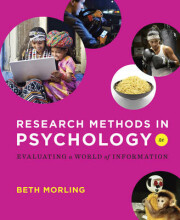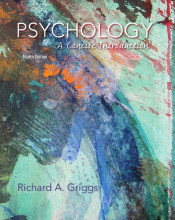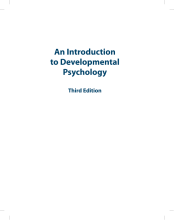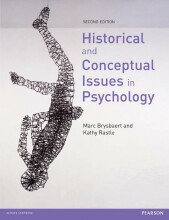Formal models
33 important questions on Formal models
How do we call a simplified representation of the world that aims to explain observed data?
What is the difference between a formal- and an informal model?
- A formal model is a mathematical description of the relationship between variables that you expect to hold. It specifies relationships
- an informal model is a verbal explanation of relations between variables.
What are the advantages of a formal model?
- It can sharpen theories by pointing out overlooked research problems
- a model is more complete in conceptualizing psychological problems compared to a linear regression for example.
- models have higher external validity since they are more of an inter individual measure, compared to an experimental procedure controlling natural covariate variables.
- Higher grades + faster learning
- Never study anything twice
- 100% sure, 100% understanding
How do we call it when a model captures not only the variance that results from the cognitive process of interest but also that from random error?
Why is overfitting a problem?
- An overfitted model is perfect in fitting the existing data, but does a poor job in predicting new data.
- a fitted model doesn't fit the existing data as well, but grasps the main tendencies making it better equipped to predict new observations
How do we call the ability of a model to predict new data?
How do we call a model’s inherent flexibility that enables it to fit diverse patterns of data?
Which factors contribute to a model's complexity?
- The number of free parameters it has
- how the parameters are combined in it: the functional form.
What problems can arise when designing and testing models?
- The irrelevant specification problem
- the bononi paradox
- the identification problem.
Describe the irrelevant specification problem.
Describe the bononi paradox
Describe the identification problem
Describe the Yerkes-Dodson law
What are the different steps taken ideally in reasoning about theory through NHST?
- There is a theory, your substantial hypothesis
- research hypothesis: reason how the theory would occur in this (artificial) situation
- statistical hypothesis: H0 and Ha based on theory.
How do we call it when the theory is almost a literal reformulation of the experimental findings?
Which three types of circular reasoning are there?
- Repeating the premise as the conclusion
- premises presupposes the truth of the conclusion (begging the question)
- premise is logically/semantically equal to the conclusion (rewriting the premise)
When do people trade on equivocation in reasoning about theories?
Which fallacies are used in NHST in reasoning about theories?
- False dilemma: either accept your null hypothesis or your theory is correct
- common practice: compare your p level to an alpha level because everyone is doing it.
- straw man: testing your theorie on a null hypothesis, there's always a bit of correlation or a bit of difference. so you find significance when you find any difference
Why is:
if theory p, then observation q
observation q
therefor theory p
not correct, and how should it be?
what is correct is:
if theory p, then observation q
- observation q
therefor not theory p
What is an important question to ask to when determining the truth of a theory based on a research?
How do we call it when people tend to interpret results in a way that fits their very specific theory when a more general theory could also hold?
How do we call a concise statement about how we believe the world to be?
What is the use of a theory?
Which characteristics does a good theory have?
- breadth
- coherence and consistency
- Descriptive adequacy
- originality
- precision and interpretability
- prediction and falsifiability
- postdiction and explanation
- parsimony
- rationality
- usability
Which characteristic of a good theory is described: is the theory new or is it a restatement of an existing theory?
Which characteristic of a good theory is described: does each component of the theory fit logically into a coherent whole with others, and is it consistent with theories in other domains?
Which characteristic of a good theory is described: does the theory accord with the data?
Which characteristic of a good theory is described: is the theory precise and understandably written?
Which characteristic of a good theory is described: is the theory formulated that critical tests can be developed to test it?
Which characteristic of a good theory is described: does the theory apply to a broad range of phenomena?
Which characteristic of a good theory is described: does the theory have applied implications?
Which characteristic of a good theory is described: does the theory make claims about the mind that seem reasonable?
Why is "a is correlated with b" less falsifiable than "a is positively correlated with b"?
The question on the page originate from the summary of the following study material:
- A unique study and practice tool
- Never study anything twice again
- Get the grades you hope for
- 100% sure, 100% understanding
































